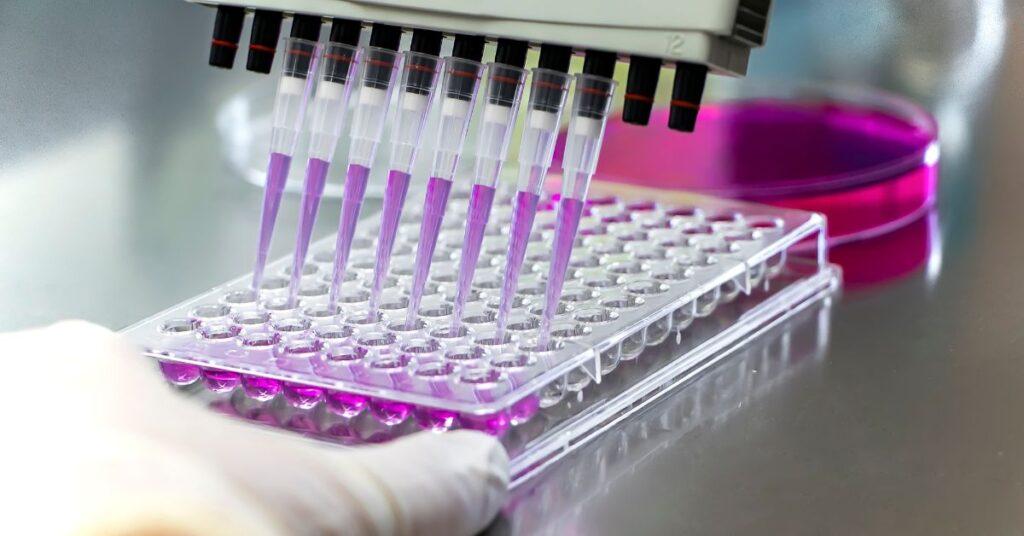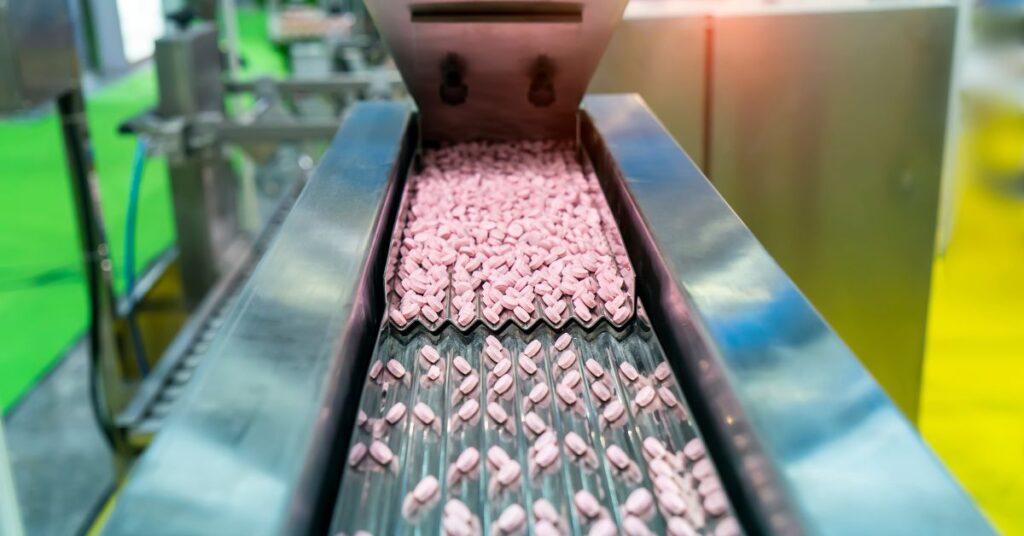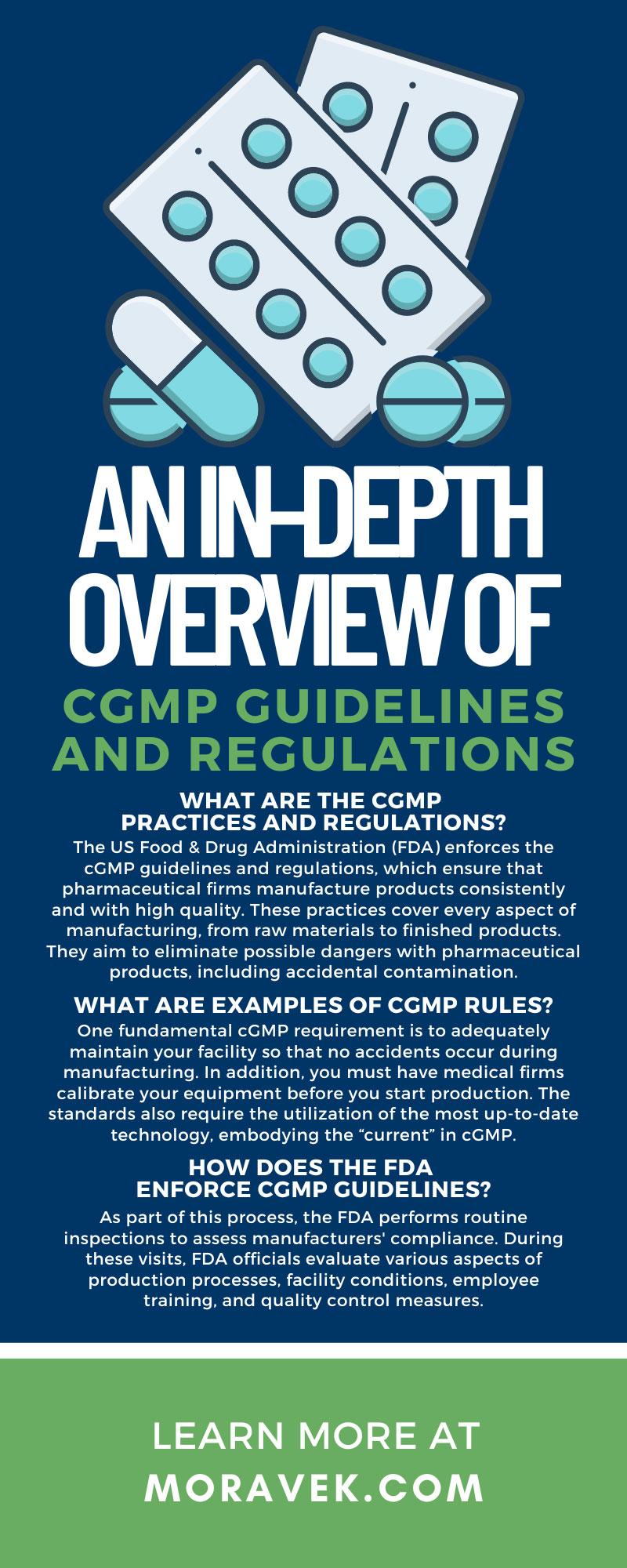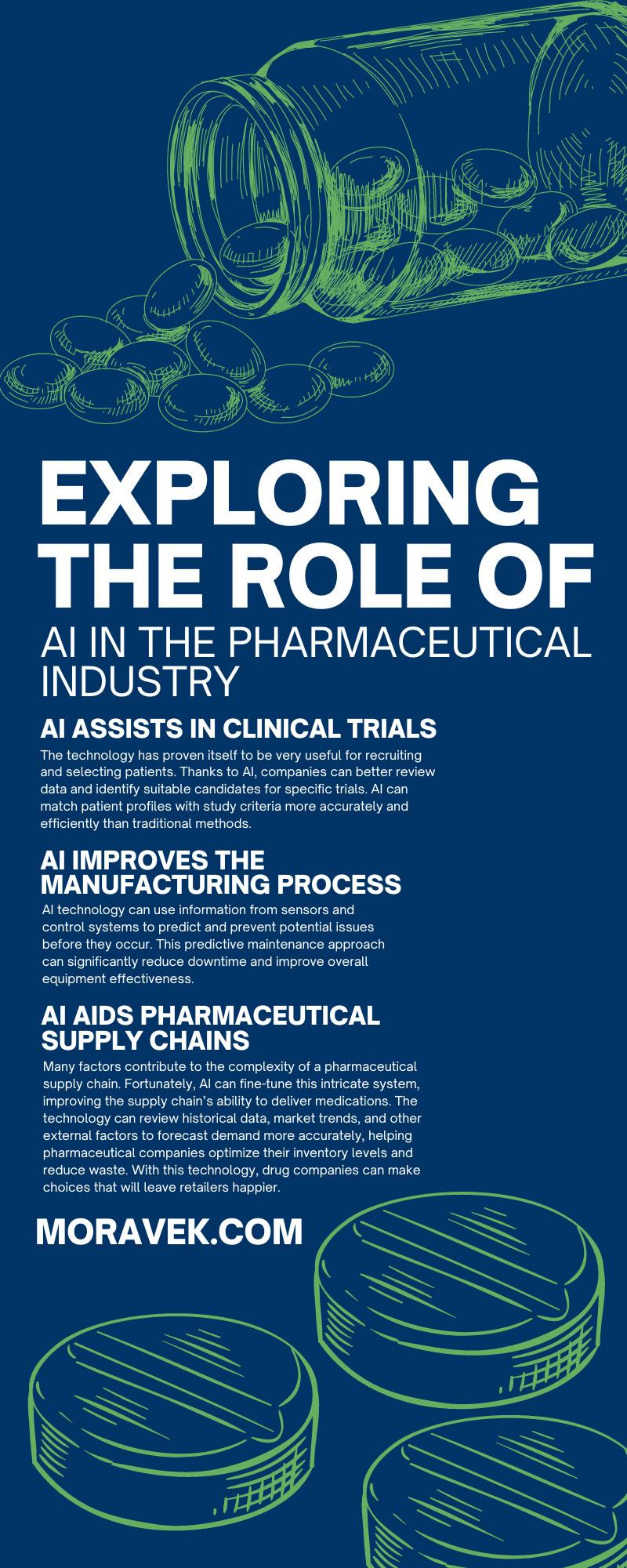Radiolabeled active pharmaceutical ingredients (APIs) play a crucial role in drug development. However, when manufacturers make these specialized compounds, they must ensure that they adhere to Good Manufacturing Practice (GMP) standards. Adopting these will help pharmaceutical companies maintain high-quality production and ensure patient safety and regulatory compliance. Review several of these best practices for radiolabeled APIs so you can improve your manufacturing operations.
(more…)High-performance liquid chromatography (HPLC) is an essential technique in pharmaceutical research and drug development. However, various factors can affect the process, including the pH level of your mobile phase. This blog will explore the role of pH in HPLC separation so that you can optimize chromatographic conditions and ensure accurate, reproducible results.
(more…)
When pharmaceutical companies develop new medications for medical conditions, they must put their products through a range of tests to ensure they will be ready for the market. One process that supports this objective is high-performance liquid chromatography (HPLC) assay testing. It is important for researchers to be familiar with this process and the advantages it can bring to their company—as well as to the end consumer. Read on to learn what HPLC assay testing is and why it’s important.
(more…)Advancements in medical research rely heavily on the ability to efficiently develop and test new drugs. However, pharmaceutical companies can find it difficult to source active pharmaceutical ingredients (APIs) for clinical trials. This made the use of outside manufacturers critical to the testing process. Read on to learn why custom API manufacturing is so vital for clinical studies.
(more…)When people think of chemical synthesis, they may consider it a process reserved for laboratories where researchers create compounds for pharmaceuticals. Yet, its influence stretches beyond those confines, affecting various aspects of daily life and the environment. Read on to learn about five little-known facts about chemical synthesis.
(more…)High-performance liquid chromatography (HPLC) is an important part of the drug development process. This is because it helps researchers ensure the purity and efficacy of pharmaceutical products that end up in consumers’ hands.
(more…)Storing chemicals at the right temperatures is essential when working with them in the pharmaceutical industry. If you do not store your chemicals under the proper conditions, your laboratory may experience threats to your staff's safety and obstructions to your research. Read on to learn about the importance of temperature control in chemical storage and the dire consequences of ignoring it.
(more…)Pharmaceutical researchers employ many processes in their work, and stability testing is one of the most important. These tests allow researchers to gather information that helps ensure consumers are taking safe and effective drugs. Read on to learn more about the role of stability testing in pharmaceutical research.
(more…)
Every day, pharmaceutical firms must maintain high quality and safety standards. One way that they can do that is by following the Current Good Manufacturing Practices (cGMP) guidelines and regulations. If you are unfamiliar with this set of rules and what they involve, this blog can help. Continue reading for an in-depth overview of this set of standards and how your firm can stay aligned with them.
Read more: An In-Depth Overview of cGMP Guidelines and RegulationsWhat Are the cGMP Practices and Regulations?
The US Food & Drug Administration (FDA) enforces the cGMP guidelines and regulations, which ensure that pharmaceutical firms manufacture products consistently and with high quality. These practices cover every aspect of manufacturing, from raw materials to finished products. They aim to eliminate possible dangers with pharmaceutical products, including accidental contamination.
By adhering to cGMP guidelines, pharmaceutical manufacturers can guarantee that their products are safe, pure, and effective. These regulations require that the companies perform trustworthy testing, implement strict quality control measures, and pursue any quality anomalies within their operations.
What Are Examples of cGMP Rules?
As you align your business with cGMP standards, you should learn about some of its most important rules. One fundamental cGMP requirement is to adequately maintain your facility so that no accidents occur during manufacturing. In addition, you must have medical firms calibrate your equipment before you start production. The standards also require the utilization of the most up-to-date technology, embodying the “current” in cGMP.
Additionally, cGMP rules mandate that manufacturers conduct thorough testing of raw materials to ensure that all ingredients meet the specified quality attributes before using them. Furthermore, maintaining detailed records of production processes, quality checks, and any deviations encountered is essential in demonstrating compliance during regulatory inspections.
Finally, cGMP emphasizes the importance of employee training to ensure all employees have expert knowledge about their company’s manufacturing procedures. Companies are also responsible for providing additional training when these processes undergo updates.
How Does the FDA Enforce cGMP Guidelines?
After reading an overview of cGMP guidelines and regulations, you may wonder, “How does the FDA enforce them?” The administration takes a systematic approach to ensure pharmaceutical manufacturers adhere to these stringent standards.
As part of this process, the FDA performs routine inspections to assess manufacturers' compliance. During these visits, FDA officials evaluate various aspects of production processes, facility conditions, employee training, and quality control measures.
In addition to routine inspections, the FDA may conduct for-cause inspections in response to specific concerns, such as consumer complaints, product recalls, or adverse event reports. Should the FDA identify deficiencies during these inspections, it can employ a range of enforcement tools.
For example, it may issue a warning letter after observing violations and expect manufacturers to rectify the issues promptly. If the non-compliance is egregious or persistent, the FDA may pursue more severe actions, including imposing fines or seeking criminal charges against the manufacturers.
Some firms have created their own quality assurance practices to ensure they will meet the FDA’s standards. By fostering a culture of compliance, pharmaceutical companies can mitigate the risk of enforcement actions and enhance their operational standards, ultimately safeguarding public health.
How Are These Separate From GMP Rules?
Even if you were unfamiliar with cGMP rules, you may have heard of Good Manufacturing Practices (GMP). This may have prompted you to wonder, “Aren’t they the same?” While both aim to ensure the quality and safety of pharmaceutical products, there is a fundamental difference between the two.
GMP refers to guidelines that provide a framework for manufacturing processes. However, these guidelines are relatively static and do not change frequently. On the other hand, cGMP incorporates the concept of “current” into the guidelines.
This distinction requires manufacturers to continually evaluate and improve their processes to incorporate the latest best practices. By doing so, they can maintain cGMP-regulated facilities that benefit consumers by providing safer and more effective products.
How Can My Business Benefit by Following the cGMP Rules?
Adhering to cGMP guidelines requires pharmaceutical manufacturers to make a significant investment. This may make you wonder how else your business can benefit by following these standards, aside from avoiding legal action and fines.
First and foremost, your compliance ensures the safety and quality of your products, which will enhance consumer confidence. Furthermore, following cGMP guidelines can lead to operational efficiencies and cost savings in the long run.
By implementing robust processes and quality control measures, you will reduce the odds of errors and product failures. Compliance also demonstrates a commitment to ethical practices and corporate responsibility, fostering trust among consumers, regulatory authorities, and investors. Adherence to the cGMP rules can give you a substantial edge in your competitive sector.
How Can I Ensure My Business Is Compliant?
Ensuring compliance with cGMP guidelines requires a proactive and systematic approach. One step involves establishing a comprehensive quality management system (QMS) that integrates cGMP principles into every aspect of the business. This includes developing and regularly updating SOPs, conducting thorough training programs for personnel, and establishing quality assurance and control positions.
Regular internal audits and inspections are crucial to identifying gaps or non-compliance issues. These audits should assess all aspects of manufacturing, including facility conditions, equipment maintenance, documentation practices, and adherence to SOPs. Any identified issues should be promptly addressed through corrective and preventive actions.
Implementing documentation practices is essential for cGMP compliance. All manufacturing activities, testing results, and quality control procedures must be accurately recorded and maintained. This documentation provides a traceable record of all operations and is essential for regulatory inspections and audits.
Engaging with external experts and consultants can also be beneficial in ensuring compliance. These professionals can provide valuable insights, conduct independent audits, and offer guidance on best practices and regulatory updates.
Additionally, investing in technology and automation can further enhance your compliance efforts. Automated data collection, process monitoring, and document management systems can improve accuracy, reduce human error, and ensure real-time compliance with cGMP guidelines.
Now that you are more aware of cGMP guidelines and regulations, you can put your company on the path to being more compliant. You can also put yourself in a better position by using trusted companies like Moravek, which offers GMP 14c API manufacturing services. We maintain a quality system and perform audits so that you can have peace of mind knowing that your business meets industry guidelines.

The world of pharmaceuticals is constantly evolving, driven by the need for novel therapies that respond to emerging health challenges. However, one long-utilized process that researchers continue to rely on is chemical synthesis. The process helps drug companies continue to help consumers with various conditions. This brief look at the process of chemical synthesis will help you gain further insight into its impact on drug development.
How Does Chemical Synthesis Work?
The chemical synthesis process involves a series of controlled chemical reactions that convert raw materials into specific, desired compounds. Starting with basic reactants, chemists carefully design reaction pathways to achieve high yields and purity of the target molecule.
Each step of the synthesis must be meticulously planned and executed, involving various techniques such as catalysis, purification, and characterization. In addition to the pharmaceutical sector, many other industries use chemical synthesis, including the manufacturing and agriculture industries.
What Role Does It Play in the Pharmaceutical Sector?
Now that you know about the process of chemical synthesis, we can examine how the pharmaceutical sector uses it. Chemical synthesis is crucial for developing new drugs since it allows for the creation of novel compounds that can target specific biological pathways, offering potential cures and treatments for various diseases.
However, it can also help drug companies improve their existing products. Researchers can enhance their effectiveness, reduce side effects, or improve their pharmacokinetic properties. By mastering this process, pharmaceutical companies can stay competitive and bring innovative therapies to market more efficiently.
What Are the Advantages of Outsourcing Chemical Synthesis?
Although some firms may consider performing chemical synthesis on their own, outsourcing it can provide them with several advantages. For example, this process allows the firms to utilize the workforce and equipment of a third party without investing in their own resources.
This allows the drug firms to be more flexible and respond more swiftly to market demands. Additionally, outsourcing can expedite the drug development process by leveraging the experience and established protocols of other firms, ultimately saving them valuable time and costs.
Chemical synthesis will continue to be essential for companies as they develop new medications. You can help your firm be innovative and efficient in the drug development process by using experienced custom synthesis companies like Moravek. We have helped clients internationally with stable-labeled and non-labeled compounds.
When mistakes occur in laboratories, they can result in companies paying high costs to resolve them, as well as compromised research and dangerous situations. Minimizing these errors is especially important for the pharmaceutical sector, which places a high value on precision and accuracy. Fortunately, you can use strategies to prevent these mistakes while improving your productivity and reliability. Here are five tips to minimize human error in the lab.
Read more: 5 Tips To Minimize Human Error in the LabUtilize Automation in Your Lab
Automation is one of the most effective ways to reduce human error in the lab. Integrating automated systems for repetitive tasks can significantly decrease the likelihood of mistakes people make by hand.
Automated dispensing systems, data collection tools, and robotics can handle tasks with precision. Not only does automation enhance accuracy, but it also allows your team to focus on more complex tasks that require critical thinking and expertise.
Revise Your Processes To Prevent Possible Errors
Another tip to minimize human error in the lab is to regularly review and update your lab processes to eliminate points where people can make mistakes. Conduct periodic audits so that you can identify weak points.
This will help ensure that you have optimized your workflow for accuracy. This could involve mapping out each process step-by-step, employing checklists to verify task completion, or implementing double-check systems.
Provide Employees With Thorough Training
Providing comprehensive training for all lab personnel is also essential in minimizing human error. Keeping your employees up to speed on new techniques and safety protocols can prevent them from making common mistakes.
Regular training sessions and refreshers can also help keep knowledge up to date while reinforcing the importance of precision in lab work. Additionally, fostering an environment that encourages continuing education will help you maintain high work standards.
Keep Your Tools Maintained and Calibrated
Using equipment that you haven’t calibrated can produce inaccurate results, leading to potentially disastrous outcomes. Establish a routine maintenance schedule for all lab instruments to ensure they function correctly and deliver precise measurements. Keeping a detailed log of maintenance activities can also help troubleshoot any issues that arise, thereby maintaining the integrity of your lab operations.
Ensure Workers Take Their Breaks
When workers get tired, they are more likely to make errors in their work. This is why it’s crucial that your lab workers take regular breaks.
By regularly taking some time away from the lab, your workers can regain their mental sharpness, thus contributing to a safer and more productive work environment. Implement a structured break schedule that ensures everyone gets the rest they need without compromising your lab’s workflow.
Focusing on minimizing human error will enable your laboratory to be more reliable and trustworthy. You can also enhance your lab’s level of work by utilizing Moravek for your needs regarding radiolabeled chemicals. In addition to offering multiple compounds, we employ experienced radiochemists who can assist you in your non-clinical or clinical research.
We have felt the launch of artificial intelligence (AI) everywhere, even in the pharmaceutical sector. The technology is proving itself to be an invaluable ally in accelerating processes, enhancing accuracy, and unlocking new possibilities for drug companies. Read on to explore the role of AI in the pharmaceutical industry and how it is affecting areas of this vital sector, including manufacturing and supply chains.
AI Is Changing the Drug Discovery Process
The drug discovery process has traditionally been a time-consuming and expensive endeavor, often taking years and costing billions. AI has been especially useful on this front by shrinking the time and costs involved. The technology can review molecular structures, biological interactions, and clinical outcomes to find promising compounds that conventional methods may have overlooked.
Furthermore, AI-powered systems can simulate drug-target interactions and predict the potential side effects. This simulation speeds up the discovery process and helps pharmaceutical companies allocate their resources more efficiently.
They can use this technology to ensure they only focus on drug candidates with the highest likelihood of success. As a result, AI enables the industry to explore a broader range of therapeutic possibilities and potentially bring life-saving medications to patients even faster than ever before.
AI Assists in Clinical Trials
The technology has proven itself to be very useful for recruiting and selecting patients. Thanks to AI, companies can better review data and identify suitable candidates for specific trials. AI can match patient profiles with study criteria more accurately and efficiently than traditional methods.
AI can also assist in monitoring clinical trial data. Advanced analytics can detect patterns and anomalies in real-time, allowing researchers to identify potential safety issues or efficacy signals earlier in the trial process. These advanced analytics also improve patient safety helps pharmacists make more informed decisions about whether to continue, modify, or terminate a trial.
AI Improves the Manufacturing Process
Like the drug discovery process, pharmaceutical manufacturing is highly complex, requiring precise control over numerous variables to ensure product consistency. AI is making significant inroads in this area, optimizing manufacturing processes and improving quality control.
AI technology can use information from sensors and control systems to predict and prevent potential issues before they occur. This predictive maintenance approach can significantly reduce downtime and improve overall equipment effectiveness.
Moreover, AI is enhancing manufacturing with computer vision and deep learning techniques. These technologies can inspect products at speeds and levels of accuracy that surpass human capabilities, allowing them to detect even minor defects or inconsistencies.
AI can also be an asset to this process by spotting any conditions that threaten the workers’ safety or manufacturing efficiencies. This level of precision ensures that employees operate in a much less risky and much more productive environment, allowing drug companies to reduce their costs and accident rates. Such reductions can add to the savings that a company can enjoy and enhance its reputation within the market.
AI Aids Pharmaceutical Supply Chains
Many factors contribute to the complexity of a pharmaceutical supply chain. Fortunately, AI can fine-tune this intricate system, improving the supply chain’s ability to deliver medications. The technology can review historical data, market trends, and other external factors to forecast demand more accurately, helping pharmaceutical companies optimize their inventory levels and reduce waste. With this technology, drug companies can make choices that will leave retailers happier.
AI is also enhancing supply chain visibility and traceability, which is particularly important in the pharmaceutical industry due to its stringent regulatory requirements and the need to prevent counterfeit drugs. Blockchain technology, combined with AI, can create secure, transparent supply chains where it records and verifies every step of a product’s journey.
Additionally, AI-powered route optimization and predictive analytics can improve logistics efficiency, ensuring that medications reach patients when and where they need them most, even in challenging or emergency situations. Pharmaceutical companies can take pride in knowing that their supply chains operate efficiently and effectively and that their products can bring comfort to customers.
AI Optimizes Marketing Processes
Even after the drug has hit the market, AI can play an important role for pharmaceutical companies. With AI-powered analytics, companies can gain deep insights into patient opinions and market trends, allowing them to create better marketing strategies. Thanks to the technology, drug firms can develop ad campaigns that will reach and raise awareness among the people who will benefit from using it.
Pharmaceutical firms can even use AI to assist them in creating a better image for their company and respond to consumer concerns about their products. Firms that promptly respond to consumer concerns by developing a better drug improve the consumers’ health conditions and enjoy strong sales for their medications, which is a win-win for both sides.
AI Advances Patient Data Security
Just as AI can help keep workers safe in the manufacturing process, it can do the same for patients even after the drug has earned approval and reached the market. After reviewing their medical records, physicians can use this technology to determine which medications and dosages would be right for their patients. Doctors can also use AI devices to monitor the patient’s health. The system can also send the patient prompts so that they do not miss times when they must take their medications.
Pharmacists can also use this technology to ensure that they are not giving customers a dangerous dosage or something that may conflict with another medication they might be taking. In a way, these applications allow AI to play a critical role in maintaining patient care.
AI Can Repurpose Other Medications
One last role that AI can play in the pharmaceutical sector is helping companies find new uses for products that they previously released. This technology can assist them in repurposing these drugs to treat emerging health conditions, allowing the drug to have a second life in helping patients get better.
These examples show that AI is revolutionizing the pharmaceutical industry across multiple spheres and proving to be an indispensable tool in the pursuit of better healthcare outcomes. Your company can also achieve better outcomes by using Moravek’s radiolabeling services. We have an extensive history of providing quality services and custom APIs for many firms and organizations and are ready to do the same for you.

